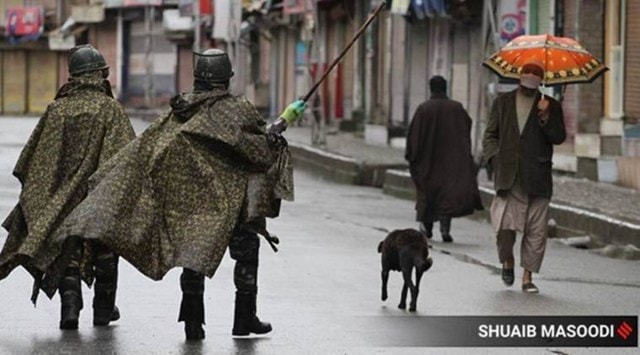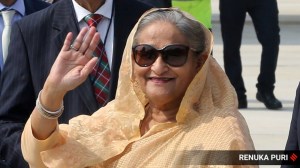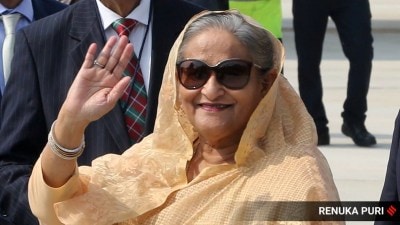Jammu residents for a year can register as voters, says DC order
Deputy Commissioner/District Election Officer, Jammu, Avny Lavasa issued the order on Tuesday while referring to difficulties faced by some people in getting registered as voters since they do not possess documents prescribed by the Election Commission of India (ECI) for registration as voters.
 The order pointed out that the special summary revision is meant for registration of new voters, deletion, correction, transposition of voters who have migrated or died since the last summary revision was held in J&K.
The order pointed out that the special summary revision is meant for registration of new voters, deletion, correction, transposition of voters who have migrated or died since the last summary revision was held in J&K.In an effort to “ensure that no eligible voter” living in Jammu district is left behind, the authorities on Tuesday authorised tehsildars, or revenue officials, to issue certificate of residence, “after conducting necessary field verifications”, to all those residing in the district for more than a year to facilitate their entry in the ongoing special summary revision of electoral rolls in Jammu and Kashmir.
Deputy Commissioner/District Election Officer, Jammu, Avny Lavasa issued the order on Tuesday while referring to difficulties faced by some people in getting registered as voters since they do not possess documents prescribed by the Election Commission of India (ECI) for registration as voters.
The order pointed out that the special summary revision is meant for registration of new voters, deletion, correction, transposition of voters who have migrated or died since the last summary revision was held in J&K. It noted that various documents prescribed by ECI that can be accepted as proof of residence include water, electricity or gas connection for at least one year; Aadhaar card; current passbook of any nationalised/scheduled bank or post office; Indian passport; Revenue Department’s land-owning record, including kisan bahi; registered rent/lease deed in case of tenants; and registered sale deed if the person concerned owns the house.
The guidelines stated that in case none of the mentioned documents is available, “field verification is must’’. Citing the example of homeless Indian citizens who are otherwise eligible to become electors but do not possess documentary proof of residence, the guidelines stated that the electoral registration officer “shall designate an officer for field verification” in such cases.
Significantly, ever since former chief electoral officer Hirdesh Kumar had stoked a controversy by saying that nearly 20 lakh to 25 lakh new voters were likely to be registered during the special summary revision, this was the first time that the UT administration has come up with an order explaining which residents are eligible for registration as voters. Pointing out that there is no requirement of domicile for registration as a new voter, Kumar had said that anyone “ordinarily residing in J&K”, and are at least 18 years as on October 1, 2022, is eligible for registration as a voter.
This had evoked protests from most mainstream non-BJP parties in the UT, who alleged that outsiders were being registered as voters to benefit the BJP electorally. Although the J&K administration maintained that no outsider was being registered as a voter in J&K, the People’s Alliance for Gupkar Declaration — with National Conference, PDP, CPI, CPI(M) and Awami National Conference as its constituents — had recently set up a panel involving politicians from even Jammu to prevent inclusion of any outsider into the electoral rolls.







